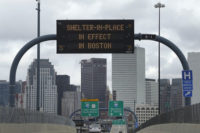The lessons learned following the Boston Marathon bombings were many, but one lesson that was learned rather quickly was that Twitter was going to become the go-to platform for gathering timely and accurate information from city, state and federal officials regarding the rapidly unfolding events of that week. As such, Twitter allowed Boston’s hotels to communicate reliable information to their guests and employees.
The Boston Police have been hailed for their success in using Twitter. Before the bombings, the Boston Police Twitter account had about 54,000 followers, but in just the 36 hours following the bombings, this grew to more than 330,000 followers. The account reportedly reached nearly 49 million people during the nearly week-long ordeal.
Security directors from Boston’s major hotels along with their local, state and federal law enforcement partners met with Cheryl Fiandaca, the Bureau Chief of the Boston Police Departments Public Information Office for an in-depth review of the role of social media in crisis communications.
Fiandaca walked the audience through the progression of the events, highlighting the various critical messages that were sent. The messages not only provided vital and important breaking information, but also corrected erroneous information that was being disseminated by various news agencies. “We did ourselves a lot of good by doing that,” Fiandaca said. “It wasn’t necessary to say, ‘These folks are wrong.’ It was necessary to say, ‘This information is right,’ and provide the media and public with correct information.”
As the chairman of Boston’s chapter of the International Lodging Safety and Security Association (ILSSSA), I feel that we have emerged from this crisis in a better position to care for our guests and employees in the hospitality and tourism sector. We are now tasked with assisting our hotel members in setting up Twitter accounts and teaching them how to best use Twitter in times of crisis. We will follow the Boston Police model because it has proven effective. ILSSA Boston’s intent is to have every hotel in the city equipped with an official Twitter account, and educate guests to follow the hotels official Twitter feed in times of crisis, or emergency. It is our hope then that hotels across the country will follow our lead.
Twitter recently announced an official program called Twitter Alerts. Building on previous crisis response efforts, Twitter is rolling out a feature that will let vetted agencies broadcast messages in a crisis. The program lets users sign up for emergency messages from agencies like FEMA, the Red Cross, as well as local departments, such as the Boston Police. Once you “follow” an individual organization’s alerts, it can send you push notifications and text messages in the event of an emergency. Twitter will deliver tweets marked as an alert by approved organizations through the traditional timeline feed and via SMS to a user’s cellphone. In addition, users who have the Twitter app for iPhone or Android will receive a push notification with the alert information.
Boston hosts more than 12 million visitors each year, and attempting to collect personal data from each guest and linking that information to commercially available mass notification systems would be an insurmountable task. Twitter offers a simple, free platform where guests can opt-in and out of Twitter alerts by a single tap on a screen. Twitter has more than 550 million users, and an estimated 135,000 new users join each day. It’s as mainstream as you can get these days, and by all indications, Twitter is positioning itself to be the most widely-used platform for worldwide crisis communications.
For me, it’s about guest and employee safety. At the end of the day, Twitter will become one of our best tools for communication with our target audience – our guests and employees. They will know where to turn for timely, reliable and critical information that has the potential to personally impact their stay in Boston. The lessons learned from the tragedy of the Boston Marathon bombings this past April will only make us safer and stronger, and much better prepared for the next time trouble finds our city.
About the Author: Michael J. Soper, CLSD, CAPP II, is Chairman and Law Enforcement Liaison of the Boston Chapter of the International Lodging Safety and Security Association. He has more than 26 years of experience in security and law enforcement.






